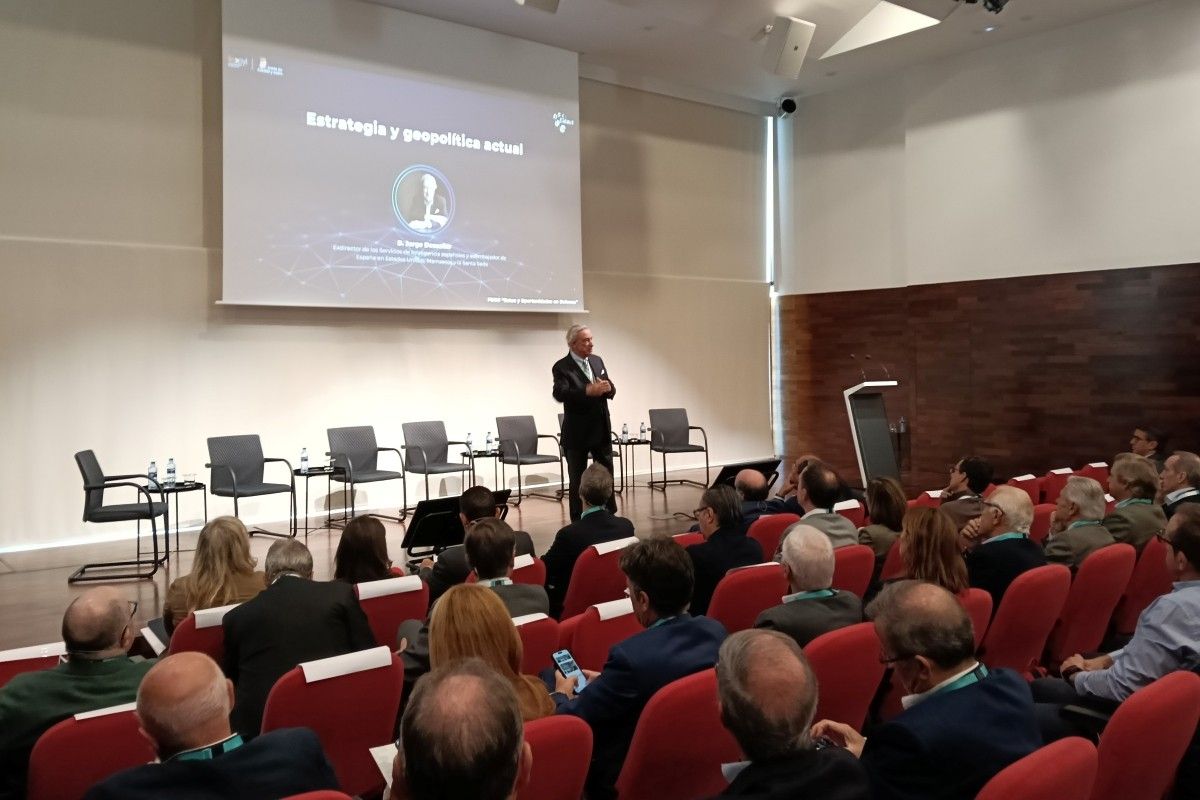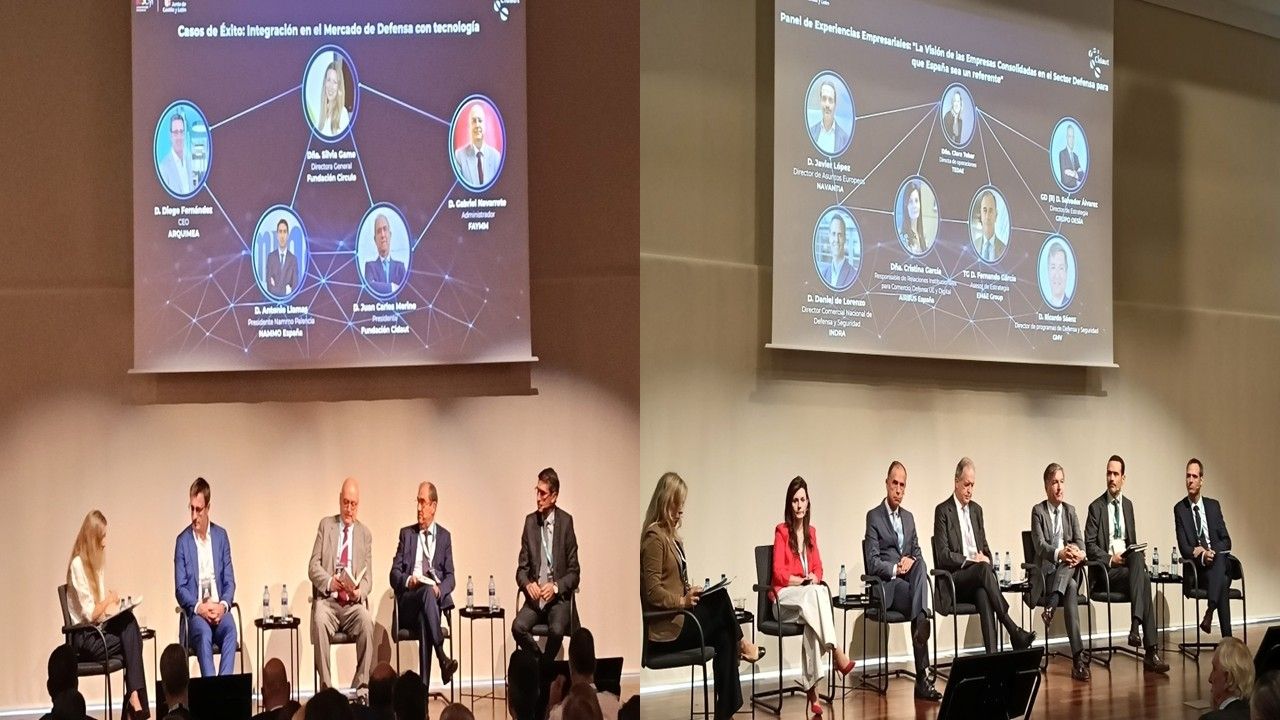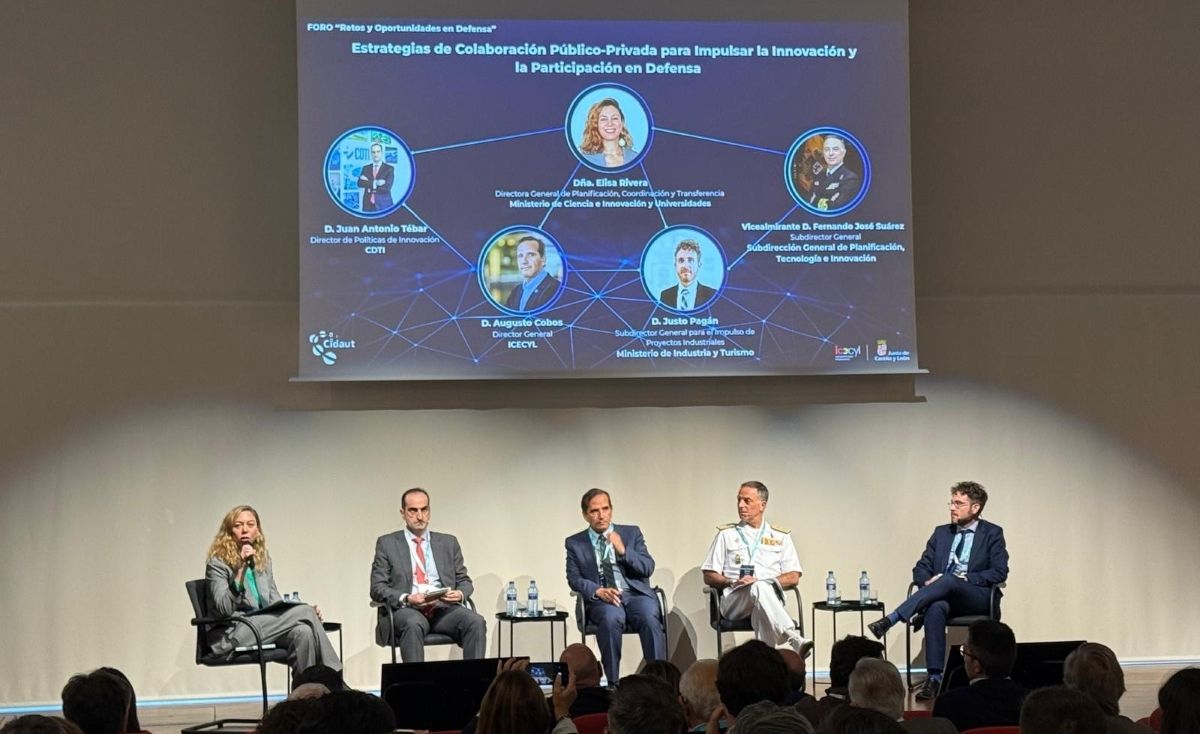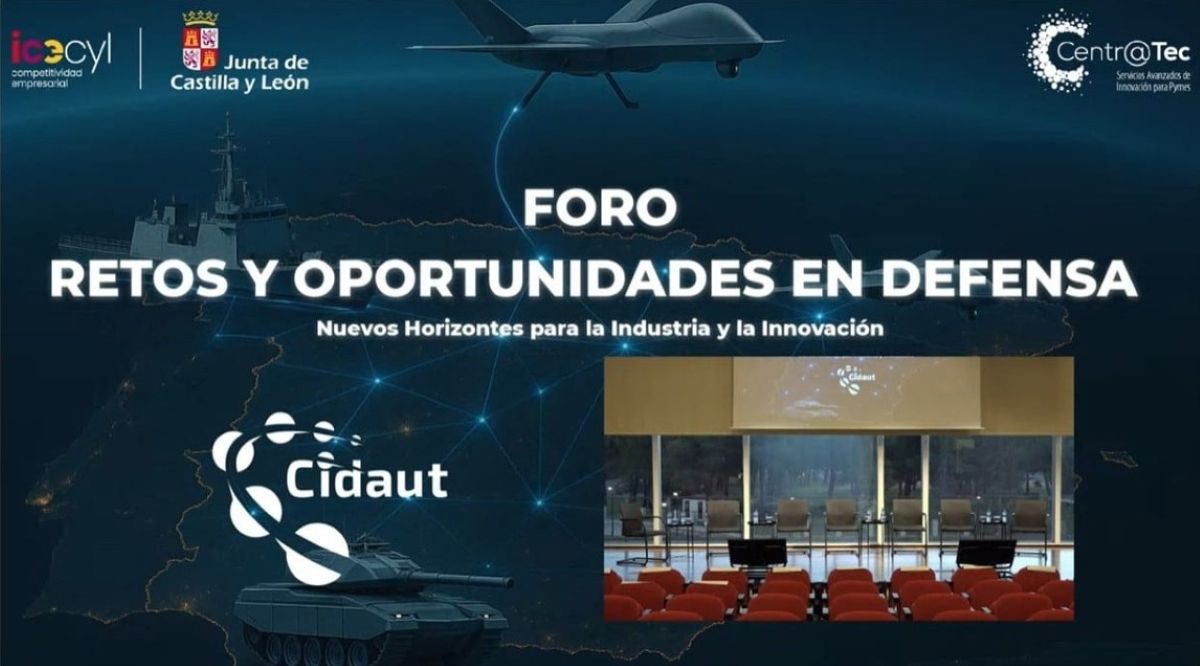On September 30, 2025, the CIDAUT Foundation has organised the forum “Challenges and Opportunities in Defense: New Horizons for Industry and Innovation” at the Boecillo Technology Park (Valladolid). This strategic event aimed to strengthen Castilla y León’s position within the national defense sector.
The forum, which was organized under the Centr@tec4 program—an initiative supported by the Institute for Business Competitiveness of Castilla y León (ICECYL) in partnership with regional technology centers—focused on promoting innovation, digitization, and technology transfer, with a particular focus on public-private collaboration and the integration of regional businesses into the defense ecosystems of the country and Europe.
A central theme of the forum was the need to build a robust defense ecosystem based on real industrial capabilities. José Oliveri, President of CIDAUT, stated: “Castilla y León has the talent, infrastructure, and determination to become a key player in the defense sector,” adding that the forum serves as “a platform to connect industrial capabilities with strategic needs.”

In the opening session, Jorge Dezcallar—former ambassador and former director of Spain’s National Intelligence Center (CNI)—provided a geopolitical overview of the international landscape. He emphasized that: “Defense is no longer just military—it is technological, energy-based, and digital,” and that “Spain must be prepared to face an increasingly uncertain world, where strategic intelligence is essential to ensure national security.”
From an institutional perspective, the regional government reaffirmed its commitment to industrial development. Carlos Fernández Carriedo, Councilor of Economy and Finance of the Junta de Castilla y León, stated: “We are committed to a strong, innovative defense industry that is connected to Europe,” highlighting that “the region is a national benchmark in cybersecurity and has a solid industrial base in key sectors such as automotive, aerospace, and pharmaceuticals.”

During the panel discussions, collaboration was identified as a key factor: “The key to addressing current challenges and seizing opportunities lies in collaboration,” and “only by working together can Spain position itself as a reference in the defense sector.” Participating companies shared experiences in innovation, internationalization, and cooperation with the Armed Forces. The conversation also focused on technological integration from Castilla y León, with a clear message: “National technological sovereignty must be accompanied by European strategic autonomy.”
Regarding European funding, it was emphasized that: “What lies ahead is not temporary—it will shape our societal model for many years to come.” Active participation of SMEs and cross-border cooperation were identified as essential elements for success.

Another key topic was public-private collaboration. Representatives from various institutions agreed that: “We are at a critical—but also highly opportune—moment to advance cooperation in the field of security and defense,” describing the effort as “a national project.”
Finally, the role of the regional administration was reaffirmed in facilitating access to European programs, promoting digitalization, and strengthening industrial competitiveness: “Our goal is to facilitate companies’ access to European programs, promote digitalization, and reinforce the industrial fabric of Castilla y León.”
Castilla y León is developing a workable strategy to establish itself in the defense and security sector by leveraging existing capabilities, supporting viable projects, and adhering to national and European frameworks. While a latent and transversal sector can be strengthened, a new sector cannot be created from the ground up. The public interest and long-term sustainability must be prioritized, adequate funding must be secured, and dual-use technologies must be promoted.
